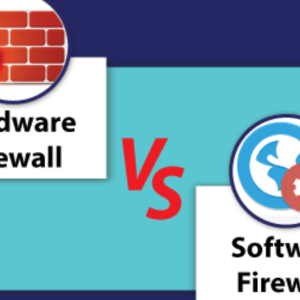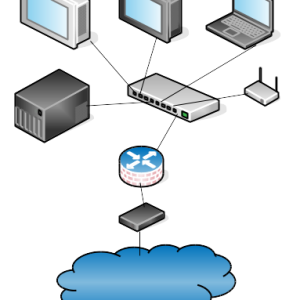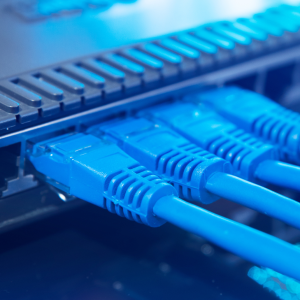
In the modern digital age, ensuring the security of information systems is paramount. While software security measures are well-known, hardware security is an often overlooked yet crucial component. This article delves into the various aspects of hardware security, cyber security hardware, secure hardware, hardware security devices, and hardware-based security controls.
What is Hardware Security?

Hardware security refers to the protection of physical devices from unauthorized access and tampering. Unlike software security, which focuses on protecting data and applications, hardware security is concerned with safeguarding the physical components of a computer system. This includes everything from the motherboard and CPU to external devices like USB drives and network cards.
Importance of Hardware Security
Hardware security is critical for several reasons:
- Preventing Physical Tampering: Unauthorized individuals can compromise devices by physically accessing and tampering with them.
- Protecting Sensitive Data: Hardware-level security measures ensure that sensitive data remains protected, even if software defenses are breached.
- Ensuring System Integrity: Secure hardware helps maintain the integrity of the entire system, preventing malicious actors from introducing vulnerabilities.
Cyber Security Hardware

Cyber security hardware refers to physical devices designed to protect computer systems from cyber threats. These devices play a pivotal role in securing networks, data, and systems from various types of cyber-attacks.
Examples of Cyber Security Hardware
- Firewalls: Hardware firewalls are essential for filtering traffic between networks and preventing unauthorized access.
- Intrusion Detection Systems (IDS): These devices monitor network traffic for suspicious activities and alert administrators of potential threats.
- Hardware Security Modules (HSMs): HSMs are dedicated devices that manage digital keys and perform cryptographic operations, ensuring data integrity and confidentiality.
Advantages of Cyber Security Hardware
- Enhanced Performance: Hardware-based solutions often provide better performance compared to software-only solutions.
- Increased Reliability: Physical devices are less prone to software bugs and vulnerabilities.
- Layered Security: Combining cyber security hardware with software solutions offers a multi-layered defense strategy.
Secure Hardware
Secure hardware encompasses devices and components designed with built-in security features. These features help protect against various threats, including physical attacks, malware, and unauthorized access.
Key Features of Secure Hardware
- Trusted Platform Modules (TPMs): TPMs are specialized chips that provide hardware-based security functions. They store cryptographic keys and ensure the integrity of the system.
- Secure Boot: This feature ensures that only trusted software is loaded during the boot process, preventing malicious code from executing.
- Hardware-based Encryption: Secure hardware often includes built-in encryption capabilities to protect data at rest and in transit.
Benefits of Secure Hardware
- Improved Security: Hardware-based security features are harder to bypass compared to software solutions.
- Data Protection: Built-in encryption and secure storage capabilities ensure that sensitive data remains protected.
- Compliance: Many industries have regulations that require the use of secure hardware to protect sensitive information.
Hardware Security Devices
Hardware security devices are physical tools designed to enhance the security of computer systems and networks. These devices provide an additional layer of protection, ensuring that sensitive data and systems remain secure.
Types of Hardware Security Devices
- USB Security Tokens: These devices provide secure access to systems and data by requiring physical possession of the token.
- Smart Cards: Smart cards store cryptographic keys and are used for secure authentication and transactions.
- Biometric Devices: These devices use unique physical characteristics, such as fingerprints or facial recognition, to authenticate users.
Implementing Hardware Security Devices
- Multi-Factor Authentication (MFA): Combining hardware security devices with other authentication methods enhances overall security.
- Access Control: Hardware devices can be used to control physical and digital access to systems and data.
- Secure Transactions: Devices like smart cards and HSMs ensure the integrity and confidentiality of transactions.
Hardware-based Security Controls Include
Hardware-based security controls include a range of mechanisms and devices designed to protect computer systems from various threats. These controls are implemented at the hardware level, providing a robust foundation for overall system security.
Examples of Hardware-based Security Controls
- Trusted Execution Environment (TEE): A secure area within a processor that ensures sensitive data and code are protected from unauthorized access.
- Hardware-based Access Control: Using physical devices like smart cards or biometric scanners to control access to systems and data.
- Secure Firmware Updates: Ensuring that firmware updates are authenticated and protected against tampering.
Benefits of Hardware-based Security Controls
- Enhanced Protection: Hardware-based controls provide a stronger defense against physical and cyber threats.
- Reduced Risk: By implementing security measures at the hardware level, the risk of software vulnerabilities being exploited is minimized.
- Improved Compliance: Many regulatory standards require the use of hardware-based security controls to protect sensitive information.
Conclusion
In conclusion, hardware security is a critical component of a comprehensive security strategy. By leveraging cyber security hardware, secure hardware, hardware security devices, and hardware-based security controls, organizations can protect their systems and data from a wide range of threats. As cyber threats continue to evolve, the importance of robust hardware security measures cannot be overstated. Investing in secure hardware and implementing hardware-based security controls will help ensure the integrity, confidentiality, and availability of critical systems and data.
If you have any questions for us, you can see more at: https://hardwarepc.xyz/, X




